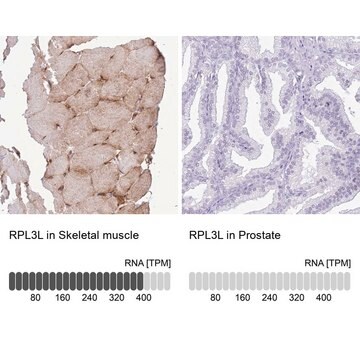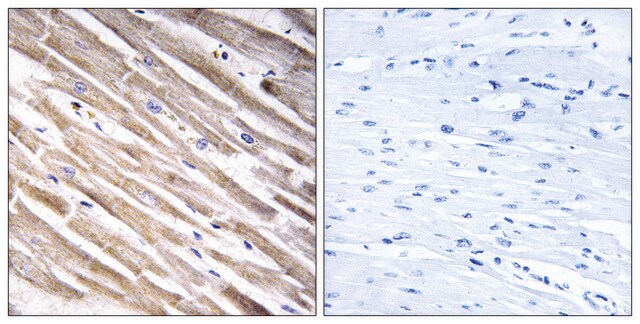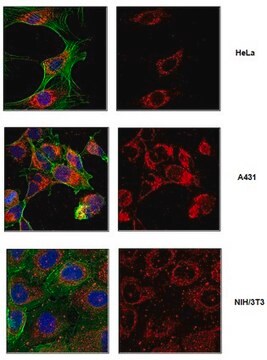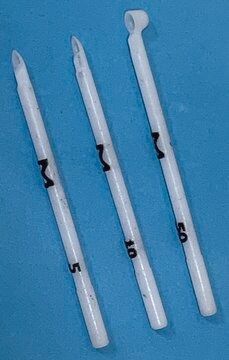ABE1438
Anti-60S Ribosomal Protein L26
from rabbit, purified by affinity chromatography
About This Item
Recommended Products
biological source
rabbit
Quality Level
antibody form
affinity isolated antibody
antibody product type
primary antibodies
clone
polyclonal
purified by
affinity chromatography
species reactivity
human
packaging
antibody small pack of 25 μL
technique(s)
immunohistochemistry: suitable (paraffin)
western blot: suitable
NCBI accession no.
UniProt accession no.
shipped in
ambient
target post-translational modification
unmodified
Gene Information
human ... RPL26(6154)
Related Categories
General description
Specificity
Immunogen
Application
Epigenetics & Nuclear Function
Quality
Western Blotting Analysis: A 1:500 dilution of this antibody detected 60S Ribosomal Protein L26 in 10 µg of HEK293 cell lysate.
Target description
Physical form
Storage and Stability
Other Notes
Disclaimer
Not finding the right product?
Try our Product Selector Tool.
Storage Class Code
12 - Non Combustible Liquids
WGK
WGK 1
Certificates of Analysis (COA)
Search for Certificates of Analysis (COA) by entering the products Lot/Batch Number. Lot and Batch Numbers can be found on a product’s label following the words ‘Lot’ or ‘Batch’.
Already Own This Product?
Find documentation for the products that you have recently purchased in the Document Library.
Our team of scientists has experience in all areas of research including Life Science, Material Science, Chemical Synthesis, Chromatography, Analytical and many others.
Contact Technical Service






![N-[[2-(Diphenylphosphino)phenyl]methylene]-3-methyl-L-valine sodium salt 95%](/deepweb/assets/sigmaaldrich/product/structures/514/394/34f4fd07-0745-48d5-b150-23701865e8a1/640/34f4fd07-0745-48d5-b150-23701865e8a1.png)

